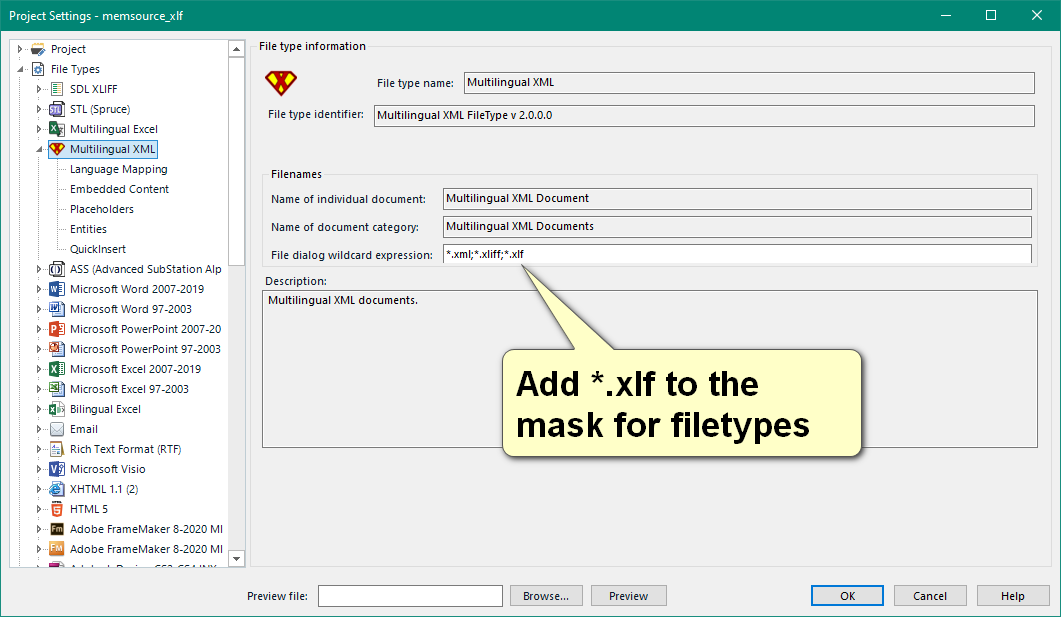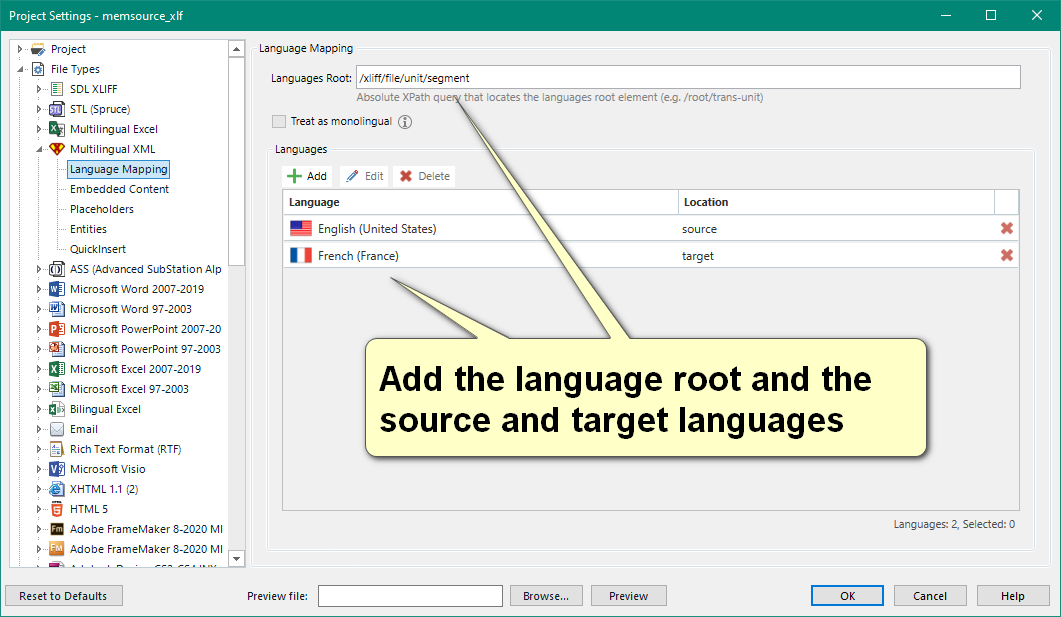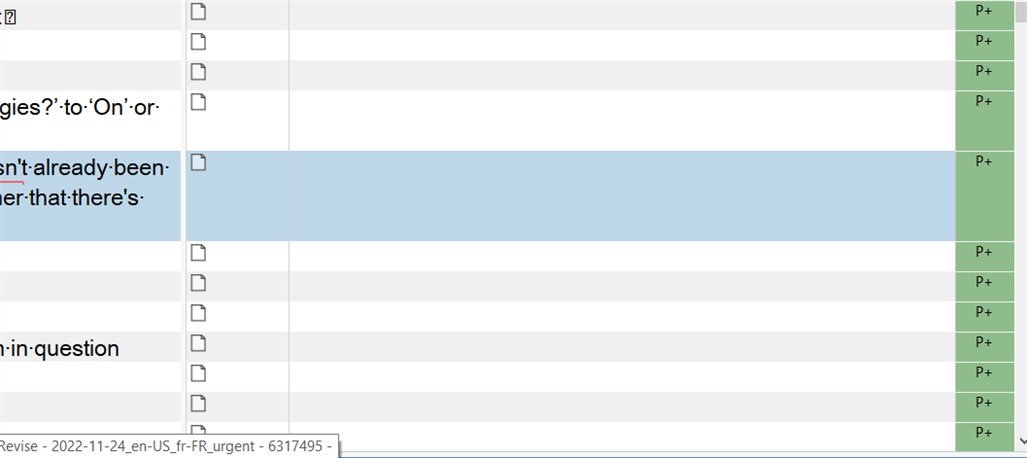Hello,
I'm unable to import .xlf files into Trados Studio 2021.
I get the error message: '"Xliff version 2.0 files are not supported" / "The element named "mate.jsont" is an invalid child for the XliffDocument element.
I've tried a few things in the file type settings, but nothing worked.
Did anyone ever have this issue and knows how to solve it?
Thank you


 Translate
Translate





